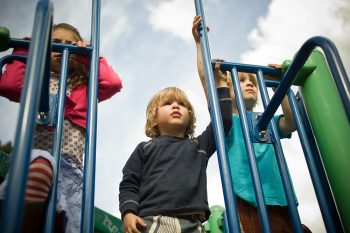Home /
The Impacts of Childhood Trauma on Social Development

Morgan Pospisil, M.A., NCC
The implications of trauma during adolescence can alter social and emotional development. Research identifies a child’s exposure to traumatic events can create ripple effects throughout an individual’s lifespan. This begins as early as infancy with the introduction to trust versus mistrust. Depending on whether or not a child has a secure attachment with their primary caregiver, will influence the trajectory of how they navigate the next developmental crisis of autonomy versus shame.
Reaction to Trauma
A child’s reaction to trauma may appear differently than what is expected. This depends heavily on their developmental stage and personality. With my younger clients that have encountered trauma one recurrent theme among all of them is personalization. Children are trying to identify their place in the world so it is natural for egocentrism to take place. However, this can lead a child to the assumption that they are culpable for the trauma. If a child is exposed to trauma during an earlier development stage, they may adopt magical thinking as a way to dissociate from the traumatic experience. Another common reaction is externalizing behavior. Externalization can include defiance, outbursts of anger, and physical aggression.
Taking a Look at Erikson’s Eight Stages of Development
Erikson, a developmental psychologist and psychoanalyst, theorized that development is based on their ego identity throughout their lifespan. The eight stages of development include:
- Infancy – Basic trust versus mistrust
- Toddler – Autonomy versus shame and doubt
- Preschool-age – Initiative versus guilt
- School-age – Industry versus inferiority
- Adolescence – Identity versus identity confusion
- Young adulthood – Intimacy versus isolation
- Middle age – Generativity versus stagnation
- Older adulthood – Integrity versus despair
Understanding the Impact of Trauma at Any Age
When hearing words like PTSD, anxiety, grief, or depression it may be difficult to conceptualize children encountering these symptoms. In using the developmental model, the overall impact of a traumatic experience can be better understood. It is helpful to understand what area of development is addressed when using a trauma focused modality. Narrowing the focus to early childhood and adolescence, maladaptation could include tantrum-related behaviors. When viewing the behavior as a child’s form of communication, problematic behavior or inappropriate behavior could be an indicator of a stress reaction.
Parenting a Child Who has Experienced Trauma
There is a proverb “it takes a village to raise a child.” This means establishing an environment that can include the support of extended family, teachers, coaches, and therapists. As a parent or caregiver, it may feel invasive to involve others when it comes to raising a child. However, the way I describe treatment to parents is through the lens of a child learning curriculum at school or engaging in a sport. Therapy is intended to help your child heal and grow. Additionally, providing a healthy routine creates a sense of safety and stabilization within your home environment. It can be tough when your child is reactive, but remember using parenting tactics like time-in as well as use of soothing words help to emphasize a nurturing environment.


